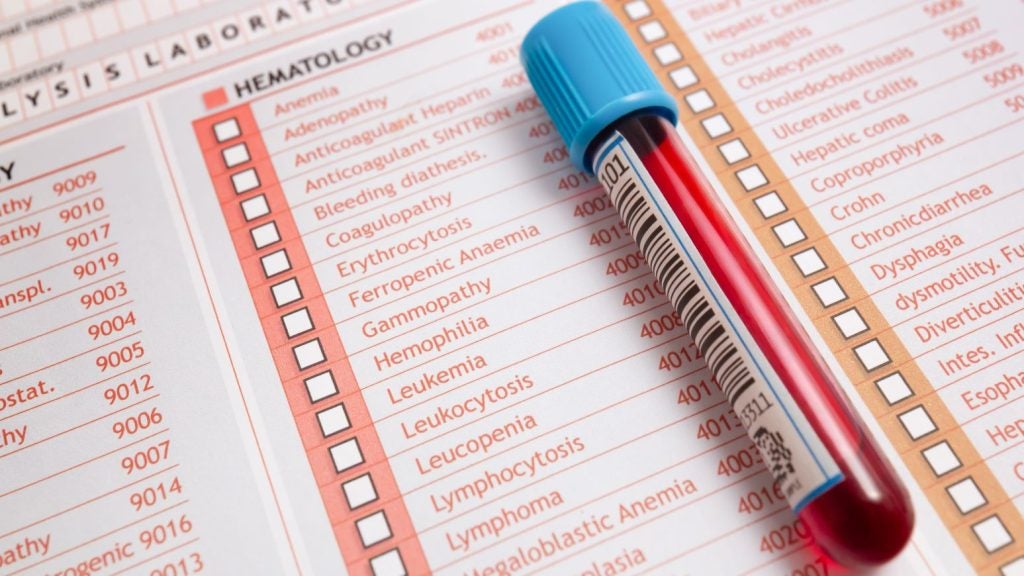Geron has announced the dosing of the first patient in the Phase II IMpress trial investigating its imetelstat telomerase inhibitor to treat patients with acute myeloid leukaemia (AML) or higher-risk myelodysplastic syndromes (MDS), who are relapsed/refractory/intolerant to hypomethylating agents (HMAs).
Led by The European Myelodysplastic Neoplasms Cooperative Group (EMSCO) and the Australasian Leukaemia & Lymphoma Group (ALLG), the trial is an open-label, single-arm, multicentre study.
The trial, which plans to include approximately 45 patients, will be conducted across sites in Australia, France, and Germany.
It aims to assess imetelstat’s efficacy with reference to haematologic improvement in the patients.
The trial’s primary endpoint is overall response rate.
It will use the combined response assessment criteria for MDS and AML on the basis of the IWG 2018 criteria (MDS), as well as the European LeukemiaNet (AML) criteria, to determine responders.
Imetelstat is owned by Geron and is currently under development for treating haematologic malignancies.
Findings from non-clinical and clinical trials showed that imetelstat targets telomerase to prevent the uncontrolled spread of malignant stem and progenitor cells in myeloid haematologic malignancies leading to malignant cell apoptosis and potential disease-modifying activity.
IMpress principal investigator Uwe Platzbecker said: “Despite some recent advances in the treatment of AML and higher-risk MDS, there is still a tremendous unmet need for new agents, especially in the relapsed/refractory setting.
“With the first patient dosed and several in screening, we are pleased that IMpress Phase II is underway and look forward to understanding more about the potential efficacy of imetelstat in this rather frail and elderly patient population.”















